Making a "one from column A" movie is a lot like improvisational cooking: you throw flavors into the mix in the hopes that they'll complement one another. A good cook knows that chocolate and peanut butter go together. Throwing together flavors that don't complement each other? That's a recipe for disaster. A famous example of this is Stephen Bochco's notorious TV flop, Cop Rock, which tried to fuse his Hill Street Blues/N.Y.P.D. Blue with musical numbers. Man, that didn't work at all. Most of these kinds of experiments aren't nearly so radical. The Family (2013, directed by Luc Besson), for instance, slides easily into the category of the mob comedy--itself a hybrid, but a road-tested one--and adds a dash of Twain's Innocents Abroad. It's an uneasy mix, but it's not so radical that it will put an audience off its lunch. It doesn't necessarily add up, though.
The family in The Family consists of Giovanni Manzoni, his wife, Maggie, and their kids, Belle and Warren. They're hiding out in Normandy as part of the witness protection program. There's a $20 million price on their heads from the mob boss who Giovanni put in prison. That boss's goons are looking in the wrong place: Gio and Maggie and the kids are thought to be in the south of France, on the Riviera, but their cover was blown and they had to high tail it north. Settling in to a new town isn't easy for them. They don't exactly mesh with rural French culture. Stansfield, their handler from the Feds, wants them to keep a low profile, but they can't help themselves. Maggie, insulted by the grocer where she's looking to stock up, burns the place to the ground. Warren, an enterprising kid, is soon running the rackets at his high school, and Belle is breaking the hearts and faces of the local boys with the help of a tennis racket. Gio, for his part, sits down to write his memoirs, much to Stansfield's alarm. He's also arguing (with a baseball bat) with the plumber who can't fix the brown water that comes out of the faucet in their new house, a problem that takes him up the chain to the mayor, and then to the local chemical company whose pollution is to blame. His new status as a writer gets him invited to the local film society to talk about Minnelli's Some Came Running, though a mix up has the society showing Goodfellas instead. Meanwhile, their cover has been blown and mob enforcers are on the way...
There are genuine pleasures to be had in The Family, but on the whole it's pretty dumb. That's nothing new for Luc Besson, whose films are virtuosic and incompetent by turns, often within the same movie. What this film does right is the conflict between its wiseguy Americans and a French culture that's ripe for lampoon. What it gets wrong is a disconnect between the violence and the comedy. This is a fairly violent film, and the violence is neither self-aware or comedic. Its mean streak is too wide for that. Take, for instance, the scene where Belle goes for a ride with some local boy and winds up beating one of them to a bloody pulp for trying to lead her astray. The ensuing tennis racket to the face is abrupt and bloody. There's no hint of slapstick in this scene. The same goes for the opening scene, in which a mob assassin blows open a door and wipes out the family he finds behind it. The proof he sends to his bosses--a finger cut from the hand of the man he mistakes for Giovanni--is gruesome. There's a tad more comedy in the games with dead bodies we see Gio play upon arrival at the new house, and there's certainly some catharsis to be had from his cutting through the red tape in order to get his water supply fixed, but I don't think any of this will get more than a nervous titter. It's too close to real violence for that.
For all that, there are laughs in the film. Tommy Lee Jones's deadpan performance as Stansfield is funny, as is the recurring critique of French food ("they put cream in everything!"). It can even be subtle about it: the bad skin that all of the French teens have is related to the film's disdain for French cuisine, one assumes. The best joke in the film finds Robert De Niro as Gio watching himself in Goodfellas and critiquing it afterward. It's a delirious piece of meta-cinema, that is marred only by the filmmakers' impatience with it. They're more interested in the plot that surrounds it, which is the wrong place to put their attention.
The actors are mostly good. De Niro can play this kind of role in his sleep, and while he doesn't sleepwalk through this movie, he doesn't bring his A-game. Michelle Pfeiffer, on the other hand, resurrects her mob widow from Married to the Mob and gives her some new wrinkles. Pfeiffer missed her calling as a comedienne, perhaps because the younger version of the actress was so inhumanly beautiful. In any event, her character has the broadest latitude inside the movie, and the scenes with her wrangling a barbecue with the neighbors and the scenes where she seeks absolution from the nearby Catholic church are the best parts of the film. Maggie's dalliance with religion provides the film with one of its best jokes, though the film itself takes pains to blunt its impact by telegraphing it from a long way off. This is a film that draws in broad strokes. Both Dianna Agron and John Di Leo make the most of their parts as the kids. The main problem with these characters isn't that they are performed badly--they're not--but that they're all genial sociopaths. These characters are all homicidal maniacs, which makes it hard for them to endear themselves to the audience. What identification with these characters the film manages comes from the screen personae of movie stars rather than from the characters as written.
Luc Besson's metier is in action films, so it's a surprise that the action in The Family is so lacking. There's a scene near the end of the film, when one of the mob goons has Maggie cornered that has to pull an excuse not to kill her instantly out if its ass in order to stall for time. The other players on her side are elsewhere. It's an awkward scene that betrays a lack of thought about how to block the action over a larger than room-sized geography. This also sets up a bombing to have greater impact on the film than it actually does. I mean, I know that the action scenes are secondary in this movie, but that's no excuse to slum their execution. This would be forgivable if they actually fit the rest of the film, but they aren't inherently funny. They mostly seem like make-work to cover for a script that doesn't have enough comedy material to fill its running time. It's lazy filmmaking.
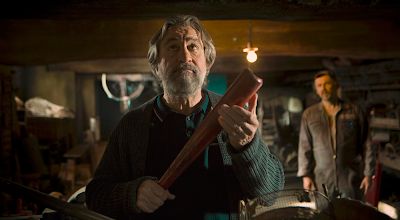
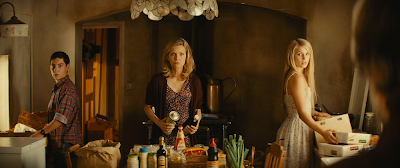
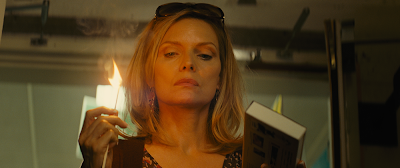
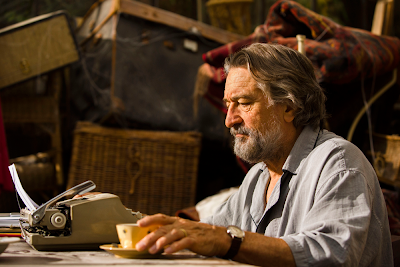

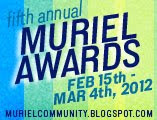






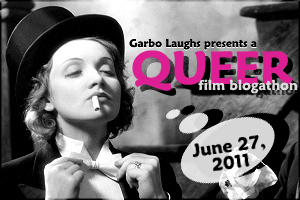






No comments:
Post a Comment